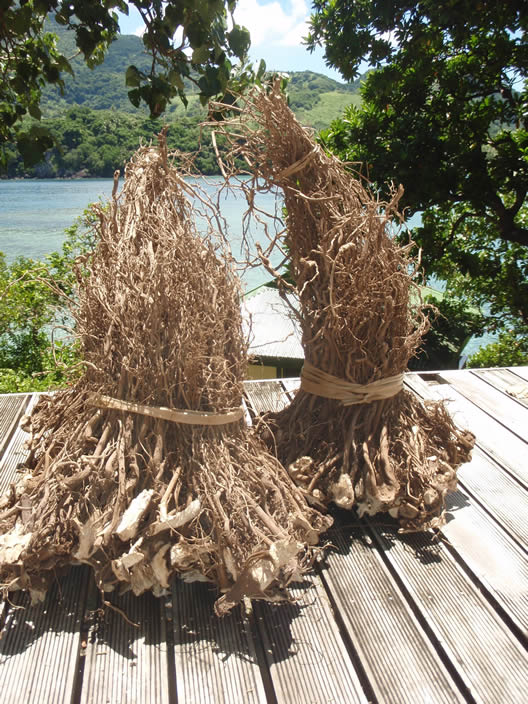The remnants of Winston’s destruction was sadly strewn all over this humble nation, even though Fiji had survived the worst category 5 cyclone in its history 5 months ago in February 2016.
However, Cyclone Winston could not destroy the spirit of its people and that of my family whom I was here to visit.

Republic of Fiji
On another note, it’s my birthday today on the 31st of July and it’s so good to be back on my island home.
Besides being with beloved family members, there’s nothing better than basking in the tropical sun, sipping on coconut water and falling asleep to the sound of wind rustling through palm leaves.
Since there are a variety of online touristy blogs, on why you should pack your bags and holiday in Fiji, I’m going to share a unique view on the protocols of visiting a Fijian village.
If you are fortunate enough to be invited to a local’s village, then familiarise yourself with these pointers so that our customs make sense to you when you are there.
NOTE: Every village has slightly different protocols; these tips are from my maternal village of Soa, in the district of Nakorotubu, based in the province of Ra.

Soa Village, Ra
Dress Sense
It’s frowned upon to dress scantily when visiting a village. So, make sure that you dress modestly and have packed appropriate clothing.
For women; long skirts, long dresses, loose t-shirts or blouses are favoured more than miniskirts, pants and tight tops.
For men; shorts, long pants, shirts and t-shirts are acceptable, also pack a sarong for when you visit the chief’s house.
Remember to take off your hat when you enter the village, leave them in your bag until your departure.
 Skinny-dipping, bikinis and budgie-smugglers are a big no-no if you go swimming; sarongs, shorts and t-shirts are the only acceptable form of swimwear. Modest dress sense show a respect for yourself and the villagers that you will come across.
Skinny-dipping, bikinis and budgie-smugglers are a big no-no if you go swimming; sarongs, shorts and t-shirts are the only acceptable form of swimwear. Modest dress sense show a respect for yourself and the villagers that you will come across.
Buy Groceries for your Host
As some villages are far from urban shops and supermarkets, it would be received with gratitude if you were to arrive with groceries such as sugar, flour, rice, oil and snacks like ‘Bongos’ (Fiji’s version of Cheezels), chocolate or cream bun.
These will help the host in feeding guests, like yourself, in their home.
Buy ‘Yaqona’ (Kava) Root for the Chief and ‘Yaqona’ Powder for the Host

Amongst a box of groceries, also buy around 1kg of ‘yaqona’ root for the chief and two 250-grams ‘yaqona’ powder packets for your host.
When these are presented to the appropriate person, they display a show of respect for the ‘vanua’ (land) and its traditions.
Protocol of Approaching Someone’s Home or ‘Bure’ (Traditional Fijian Home)
The etiquette of approaching someone’s home is different for both men and women.
When a man approaches a home, he is to say ‘dua o’.
Women say, ‘mai na vaka dua’.
And then you wait for the resident’s response, which signals you are welcome to come to the door and enter their home.
Upon Entering Someone’s Home or ‘Bure’
Always remove your shoes and leave them at the door.
It’s rude to enter the front door unless the host has advised that you can; this entry is usually reserved for the owners of the home or those of chiefly rank. All other visitors must enter the home by the side or back door.
When you’ve entered a home, don’t walk upright but stoop slightly. If you’re walking past a person who may be sitting on the floor, say ‘tulou’, which is Fijian’s way of saying excuse me.

Bure
Protocols of Greeting
If you’re meeting those of chiefly rank, use both of your hands to shake theirs and avoid looking directly into their eyes. This shows respect for who they are in the village.
However, the normal one-hand shake and a kiss on the cheek may be used for all other villagers.
Please note that it is considered rude to touch someone’s hair or head unless they are a child.
Present a Small ‘Sevusevu’ to your Host Upon Arrival
After greeting your host and settling into the home that you’re staying in, present one of the 250-grams of ‘yaqona’ packet whilst you are all sitting on the floor.
This is your ‘sevusevu’ (traditional gift offered by visitors) to the home you’re staying in and to the ‘vanua’.

Beloved grandmother & our cherished carer
Present Yourself to the Chief
When the time is right, your host will take you to the chief’s home so that you may be presented per protocol. The men are to wear a sarong on its own or on top of their pants/shorts.
Your host will present the ‘sevusevu’ that you have brought, which is the 1kg of ‘yaqona’ root and say a few words. One of the receiving members will accept the gift on behalf of the chief.
Don’t walk upright towards the chief to greet them if they are sitting on the floor. Rather, walk on your hands and knees as a mark of respect and humility on your part.
Also, you will make your stay much more enjoyable if you brought some groceries and/or gifts for the chiefly family members.
‘Yaqona’ Ceremony
After all the formal greetings and protocols are done, you may be asked to join a gathering around the ‘yaqona’ bowl. Keep in mind these steps when receiving a ‘bilo’ (coconut cup) of ‘yaqona’:
- clap with cupped hands once and receive the ‘bilo’ with both hands;
- say something like ‘bula’ (hello) to all present;
- drink all of the ‘yaqona’;
- give the ‘bilo’ back to the person who gave it to you; and
- clap with cupped hands about 3-4 times after.

‘Yaqona’ ceremony
Table Manners
It’s understandable if you are unable to stomach typical Fijian food that is offered to you. However, whatever you do, please remember to not pick up your food and smell it.
This is considered the highest form of disrespect towards your host. Be gracious about how you handle yourself at meal times.
Conduct in the Village
Being courteous and polite goes a long way in any culture, especially in the villages of Fiji. Greet every person you walk by respectfully and refrain from using swear words or dirty remarks.

‘Taralala’ (Dancing Fijian Style)
Present a Small ‘Sevusevu’ to your Host Upon Departure
When it’s time to leave the village, you will present the last ‘sevusevu’ of the second 250-grams of ‘yaqona’ packet to your host when all are sitting on the floor.
This is called ‘ai tatau’, which expresses your gratitude to the home and ‘vanua’ for accommodating you. And it will also ensure that you have a safe journey back on the road without any hassle.
SUMMARY
If you get confused or have forgotten certain etiquette, don’t hesitate to ask your guide. It is better to ask many questions to get the protocol right than to make a mistake and cause embarrassment to yourself and those around you.
I do hope that you will visit a Fijian village one day for it is a priceless experience filled with respect and tradition; and you will feel like you have stepped back in time.
“A harmonious village is the symbol of interconnectedness between kinship, clans and tribes,” Miriam Ratu.
NB: Many thanks to my mum, Maraia Ratu, for instilling in me an appreciation of our village and for teaching me our ways and protocols throughout my life.




